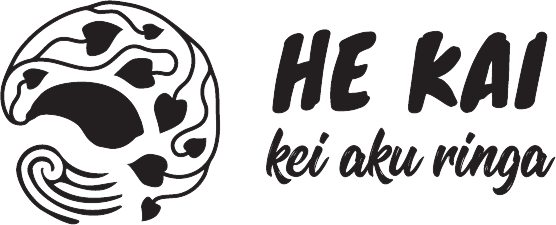28 Sep Political party policies of relevance to kai, wai & kori tinana
Posted at 17:10h
in News
We have looked at the current campaign policies of relevance to our mahi at Toi Tangata and the wider sector we engage with. Key kaupapa for us at the moment include actions that address food insecurity and the achievement of food security and sovereignty; the achievement of environments and actions which support oranga kai and oranga tinana, along with the oranga of the taiao. We have also looked at policies that support the achievement of te reo Māori, whānau ora, workforce development, and the development of Māori providers.
*Policy statements from NZ First or Act not yet available at the time of writing/none of relevance.
Addressing Food Insecurity, including policy actions that address poverty

- Reducing child poverty and mitigating the impacts of poverty and socioeconomic disadvantage by expanding the Lunches in Schools programme to 200,000 children, which will create thousands of local jobs, help ease the pressure on parents, and ensure our children have the energy to learn.
- Boosting Whānau Ora to continue to deliver the support whānau need on the ground and in the communities who need it most.

- Create an accessible fruit and veggie scheme.
Environments and actions which support oranga kai, oranga tinana/kori tinana

- Labour will continue to inspire active, healthy and creative children and young people by rolling out our Healthy Active Learning programme, delivering our strategy for women and girls in sport, and putting 300 artists in schools through the Creatives in Schools programme.
- Investing in increased cycleways and walkways.
- Boosted funding for the water safety sector to meet increased demand, including Surf Life Saving New Zealand, Coastguard New Zealand, and Water Safety NZ.

- Investigate a levy on sugary drinks to fund affordable dental care, establish and support water-only policies in schools, hospitals, and sports clubs, and restrict junk food advertising aimed at children.

- Create a Māori specific sports fund, that supports increased participation of Māori in sport including; the development of Māori sport codes and organisations, and Iwi/hapū Pā wars and events. Provision of workforce development including mentoring, scholarships and upskilling volunteers and coaches. Funding and recognition to support Māori sporting governance and participation as Māori at world sporting events.

- Begin work to establish two new National Parks and build two new Great Walks.
- Ensure New Zealanders are able to continue to enjoy access to recreational fishing, whitebaiting and hunting.

- Strengthen public health, tax sugar and junk food.
Oranga Taiao, Wai

- Phase out even more single-use plastic and address food waste by redirecting food to those in need. Continue to establish jobs through the Waste Minimisation Fund.
- Policies which clean up our waterways to ensure Kiwis can safely swim in their local rivers and lakes, and upgrade water services, bring our drinking , waste and stormwater infrastructure up to scratch.

- Acknowledge the intrinsic whakapapa of freshwater, and support hapū and iwi to negotiate for those whakapapa rights to be acknowledged in law. Adopt a position that acknowledges Māori proprietary, customary, and decision-making rights and interests to freshwater and re commence work on the develop a policy framework on how Māori rights and interests are implemented in freshwater management and allocation.
- Substantially increase funding to the Te Mana o te Wai fund to support the efforts of whānau, hapū and iwi to protect and restore catchments and aquifers, and put a moratorium on new consents for water bottling plants, until a new allocation system has been developed.

- Create a fair system for water allocation, with commercial users like water bottling companies paying a resource rental fee, and allocation phased down to sustainable levels. Iwi and hapū will be involved in designing a framework that recognises te mana o te wai Māori interests, prioritises ecological integrity, and protects food production.
- Uphold the kaitiaki, proprietary, and customary rights of iwi and hapū over water.
- Fix kerbside plastic recycling to be more consistent throughout Aotearoa, phase out low-grade plastic products that can be easily replaced with reusable alternatives, and commit to zero food waste and zero e-waste in our landfills.
- Investigate the development of proposals for integrated marine ecosystem management for all activities. This will include commercial fishing, within a kaitiakitanga framework, that ensures ngā taonga ō te moana are managed responsibly for current and future generations with te Tiriti o Waitangi honoured.
- Research and plan for the impacts of climate change on health and disease.
Te Reo Māori and Māori Education

- Support Kōhanga Reo, to ensure kaiako are paid fairly and facilities are in good condition.

- Establishment of a Māori Standards Authority; an independent statutory entity whose role will be to audit all public service departments against cultural competency standards, including the monitoring and auditing of language plans. Investment into te reo Māori resources, and into early childhood, primary and secondary schools for Kaiako to develop their reo. Extend Māori language week to a whole month, and require all Primary Schools to incorporate Te Reo Māori into 25% of their curriculum by 2026 and 50% by 2030.
Whānau Ora

- Assisted Māori-led programmes, to meet the specific needs of Māori communities. The range of responses cover areas including community outreach, healthcare (particularly for kaumātua and kuia), rangatahi training and support for small businesses.
Other policies of relevance funding, workforce development

- Require DHBs to annually construct and report against a Māori health strategy to help address inequities.
- Invest an additional $30 million per year in our childhood oral health programme.
- Establish a National Cancer Agency with primary responsibility for better access to diagnosis, treatment and care across New Zealand. They will provide leadership in all aspects of cancer control, including prevention, screening and treatment.

- Incorporate mātauranga Māori into the health system, and fund provision of primary healthcare through Māori organisations, overseen by a new Māori health agency that focuses on remote areas with significant health disparities.
- Ensure communities have influence over public health decisions that affect them by Increasing resources for wellness and preventative health measures, to keep everyone as healthy as possible and Increase public health funding to keep pace with need and the growing population.

- Primary Care – Boost funding of primary health care through introducing a risk-adjusted capitation model (much like we are doing for schools). The goal is to keep GP visits below $10 and make nurse or nutritionist visits free.


